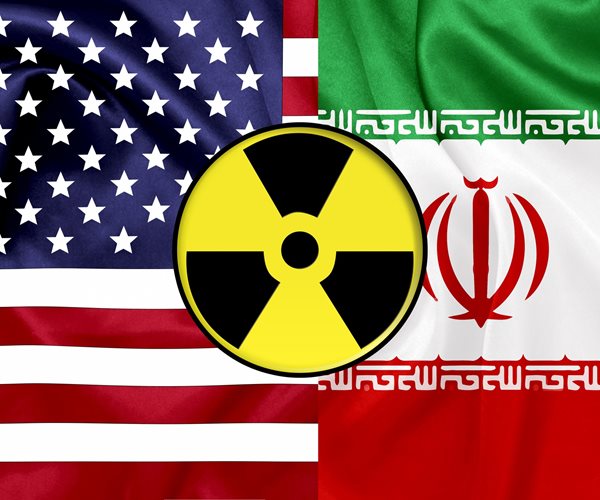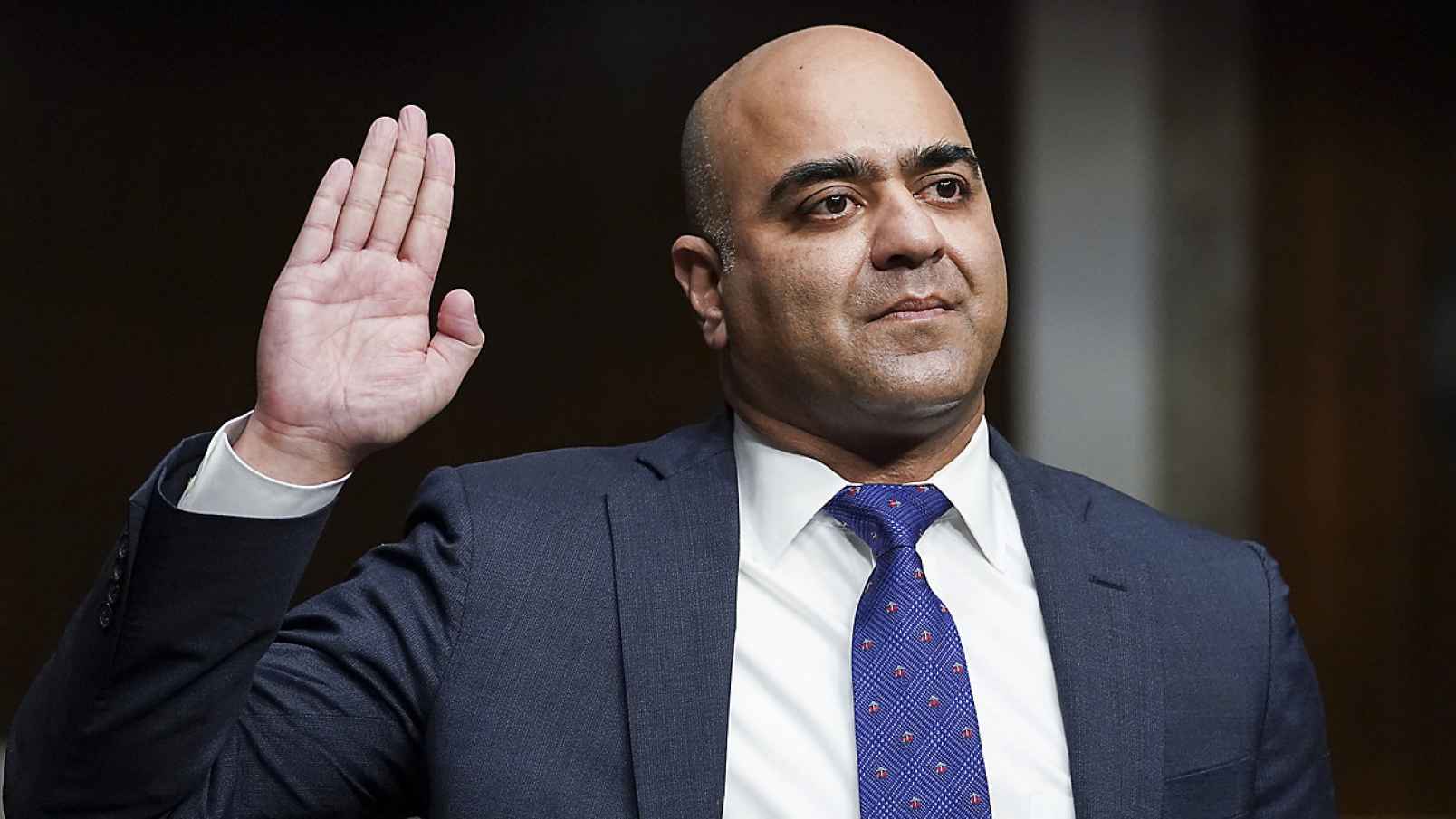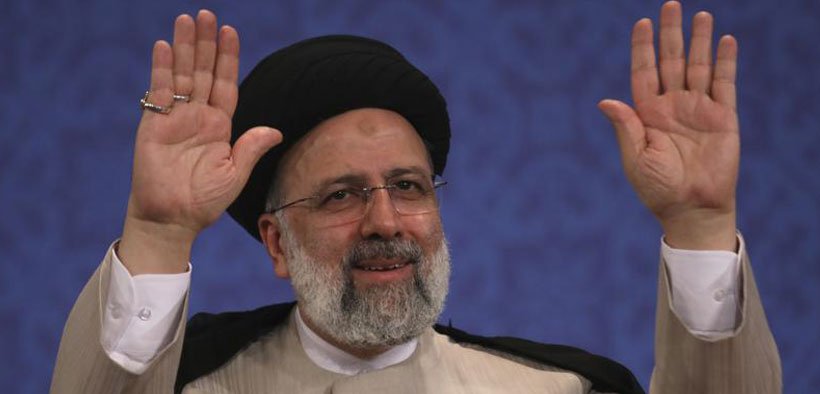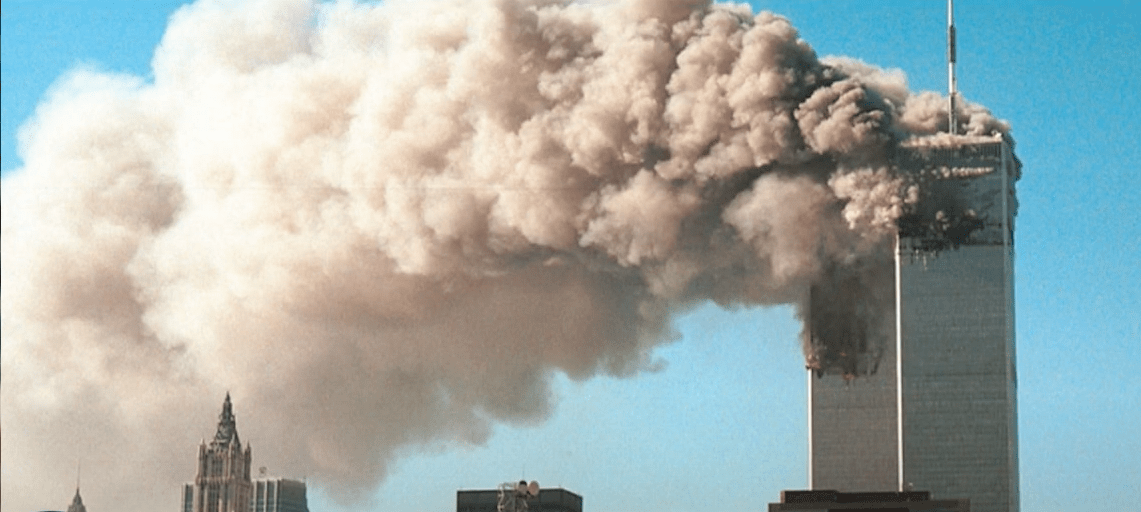Articles
What Part of Iran Won’t Listen Doesn’t Team Biden Get?

Initially published in Newsmax By Clare M. Lopez
Days into the Biden-Harris administration, the outlines of its makeup and expected policies are coming into view. Many appointees are retreads from the Obama years: William Burns will head up the CIA, Jake Sullivan will be the new National Security Advisor, Anthony Blinken is the new Secretary of State, and his deputy is Wendy Sherman.
Unfortunately for those of us who care about Mideast security and stability, this line-up does not bode well for either.
Add Robert Malley to the mix as the Biden’s possible special envoy to Iran and affairs in the region soon could be troubled indeed.
To be sure, Blinken has sounded cautionary notes about dealing with Iran, saying on Jan. 20 of this year, 20 that Washington, D.C. is still “a long way” from reaching a new nuclear deal with Iran, despite Biden’s commitment to rejoining the Joint Comprehensive Plan of Action (JCPOA) as soon as possible.
Speaking before the U.S. Senate Foreign Relations Committee during his Jan. 19, confirmation hearing, Blinken soothingly promised to ensure that Iran would be “coming back into compliance with their obligations.”
But what’s left unspoken is the reality that the Tehran regime consistently has been violating not just the JCPOA but the Nuclear Non-Proliferation Treaty (NPT) to which it was an early signatory in 1970, and remains so to this day.
Even leaving aside the stunning revelations from the National Council of Resistance of Iran (NCRI) in August 2002 about heretofore secret sites of the regime’s nuclear weapons program, evidence continued to emerge.
For example, the November 2011 Board of Governors Report from the International Atomic Energy Agency (IAEA) reported in detail work Iran was conducting on nuclear warheads.
The Mossad’s 2016 heist out of Tehran of the archives of the Iranian nuclear weapons program revealed much more.
Agreements are clearly irrelevant: the evidence leaves no other conclusion but that Iran’s nuclear program has always been about getting the bomb with which to obliterate its enemies, beginning with Israel.
Since the July 2015 JCPOA, Iran steadily has been breaching its provisions: under the deal, Iran’s stockpile of low-enriched uranium is not supposed to exceed 202.8 kg — but as of November 2020, the stockpile stood at 2442.9 kg.
The level of enrichment under the JCPOA was limited to 3.67%; as early as July 2019, however, Iran had begun enriching up to 4.5%.
In early January 2021, the Iranian government announced that it had resumed enriching uranium up to 20% at the underground Fordow enrichment site (a facility that is banned under the JCPOA from conducting uranium enrichment).
Iran also has been violating JCPOA terms on advanced centrifuges.
A January 2021 report from the Institute for Science and International Security (ISIS) described construction of a new, large-scale underground centrifuge assembly facility at Natanz, the site of a July 2020 blast that destroyed the previous above-ground facility.
ISIS president David Albright warns that the Islamic Republic’s “breakout time” to a nuclear bomb could be cut to mere weeks, depending on variables including how many advanced centrifuges are put to the task.
Another variable is how many advanced centrifuges might be spinning away at secret sites, closed to IAEA prying eyes.
A Jan. 13, 2021 report from The Wall Street Journal added to the concern, citing an IAEA report that Iran was taking steps to produce uranium metal— used to build the core of a nuclear weapon—at a site near Isfahan.
All of which is to say that “rejoining” the Iran nuclear deal, much as Biden or European partners might like to, will be no simple step.
Indeed, according to Jan. 20, 2021 reporting from Reuters, Iranian President Hassan Rouhani told a cabinet meeting that “The ball is in the U.S. court now. If Washington returns to Iran’s 2015 nuclear deal, we will also fully respect our commitments under the pact.”
What the Iranian regime really wants from the Biden administration is a lifting of sanctions imposed by President Trump after the U.S. withdrawal from the pact in May 2018.
It should be noted that financial inducements were not used to improve the well-being of the Iranian people then, nor would a repeat infusion be likely to do so this time.
Rather, now as then, the Islamic Republic seems emboldened by the prospect of a compliant U.S. administration.
Jan. 4, 2021, the IRGC navy seized a South Korean tanker near the Strait of Hormuz; reportedly, Tehran seeks the release by Seoul of frozen Iranian funds.
On Jan. 13, 2021, an Iraqi Hezbollah Brigades Commander offered on Telegram to “offer counsel and training” to “liberation movements” within the U.S.
On Jan. 16, the regime launched anti-warship ballistic missiles at a simulated target in the Indian Ocean (landing 20 miles from a commercial ship and 100 miles from the USS Nimitz aircraft carrier). Newsweek reported mid-January 2021 that the IRGC had positioned so-called “suicide drones” in northern Yemen, capable of reaching as far as Israel.
Whether bluster to extort concessions from a White House team widely viewed as weak on Iran or opening salvos to buttress secret talks almost surely already in progress, Iran’s behavior must be confronted firmly and soon.
Biden admin statements in support of the Abraham Accords, the move of the U.S. Embassy to Jerusalem, and caution regarding the JCPOA, are all well and good; but other early statements opposing the terrorist designation of the Houthis and declaring that arms sales to Saudi Arabia will be curtailed cannot but bolster Tehran’s confidence that a return to the “good old days” of the Obama administration is just around the corner.
The real danger in allowing a perception of weakness to take hold this early on is that regional U.S. friends, allies, and partners may well feel left adrift.
What steps they may then take in uncoordinated efforts at self-defense could prove badly destabilizing.
The Tehran regime, in fact, is in a weakened state after four years of Trump’s “maximum pressure” campaign.
The Biden team would do well to build on that to stop Tehran’s regional support for terrorism and halt its drive for the bomb.
Clare M. Lopez is the Founder/President of Lopez Liberty LLC, a former career operations officer with the CIA, and a Senior Analyst for Ravenna Associates, a strategic corporate communications firm.
Articles
Have We Forgotten What Happened On 9/11?
Articles
Sharia in the U.S. Judicial System?

The U.S. Senate’s recent confirmation of Zahid Quraishi as America’s first Muslim federal judge to a lifetime position on the District Court of New Jersey raises some concerning questions.
First and foremost, there is the question of his faith. Does it matter if Zahid Quraishi is a Muslim? The Left would, of course, maintain that raising the Muslim identity of Quraishi is racist, bigoted and “Islamophobic.” But those who understand the reality of Sharia – and the fact that Islam is not a race — understand that this matter is more complicated than what might first meet the eye.
It may very well matter if Quraishi is not just a Muslim “by name” – or just a “secular Muslim” by birth heritage. Indeed, if, as an adult adherent to Islam, he devoutly recites the Shahada — “There is no god but Allah, and Muhammad is the Messenger of Allah” – then Quraishi’s Muslimness could matter very much. That’s because it could indicate whether or not Quraishi would ever uphold aspects of Sharia – Islamic law – in his legal rulings.
As a survivor of Sharia law, I can tell you: Sharia matters — and in the most horrendous and painful of ways.
It is vital to understand that in Islam, Allah’s Law is supreme for Muslims, above all other laws and legal systems. And that poses a problem for America when Islam resides on its territory, because Sharia is completely incompatible with the U.S. Constitution and the foundations of a free society.
Quraishi’s relationship to Islam, therefore, matters a great deal — seeing that his new position entails significant power and influence in America.
So let’s dig a little bit deeper on Quraishi.
The Hamas-linked Council on American-Islamic Relations (CAIR) surprisingly did not come out and cheer Quraishi’s appointment — as one might have expected them to do. Instead, the Muslim “civil rights” organization appeared to be quite furious about him. Zahra Billoo, head of CAIR’s San Francisco branch, issued a statement affirming that she “would much rather have a white Christian judge with progressive values… It’s not enough that he is Muslim. In fact, it’s insulting.”
It appears that the problem for Billoo and CAIR is that Quraishi is not a Muslim from an apparent “list” of “20 to 50 Muslims who have been in the fight” for “social justice.” One unnamed Muslim politician who complained to Slate magazine about Quraishi’s appointment echoed the same theme: “We don’t know what his stances are on civil rights because you can’t find one article or anything that he’s written publicly about the Muslim struggle in the last 20 years post-9/11.”
For those concerned about Quraishi’s potential ties to Sharia, this negative disposition from the “Sharia camp” toward the Muslim judge might appear to be good news. But is it?
CAIR’s concern about Quraishi’s supposed lack of support for “progressive values” appears to be a good sign in light of CAIR’s own record of opposing counterterror measures and slandering opponents of jihad and Sharia tyranny. However, CAIR’s disposition toward Quraishi tells us little, if anything, about the key issue at stake: does the judge hold Islamic values or not?
The narrative takes another peculiar twist when we examine what transpired during Quraishi’s questioning before the Senate Judiciary Committee: When asked by Committee Chair, Democrat Senator Dick Durbin: “What do you know about Sharia law?” Quraishi answered that he knew “nothing about Sharia.“
Really?
Quraishi knows “nothing” about Islam or Islamic Law?
Christine Douglass-Williams has commented on Quraishi’s dubious answer:
“Virtually everyone knows something about the Sharia. In his position, Quraishi is likely to know a lot, and was probably fibbing, and not in an intelligent way, either. It isn’t possible that a man of his standing, who ‘has served as a military prosecutor and Army captain in Iraq, as an assistant U.S. Attorney who has tried cases of public corruption, organized crime and financial fraud, and as a white-collar criminal defense lawyer’, would know ‘NOTHING’ about Sharia.”
True indeed.
What makes the matter even more peculiar is that when one pulls up Quraishi’s questionnaire answers for the Senate Judiciary Committee, one finds that he is mentioned as a “Muslim” many times in his “Honors and Awards” list. So Quraishi is praised, rewarded and held in acclaim by the Muslim community for his achievements in light of his Muslimness, but he personally doesn’t know anything about Islamic law at all?
Could it be that Quraishi might actually not be the incidental Muslim he postures as being? Could it be that he has been recognized and awarded by important prominent Muslim organizations because they gauged that, among other things, he actually is somewhat of an adherent Muslim after all?
Is it possible that CAIR might really not be as upset as it is claiming to be about Quraishi’s appointment? Or maybe it is upset, but not for the reasons it has given? Could it also be that certain players involved in this narrative are engaging in some form of taqiyya – the command in Islam for Muslims to deceive non-Muslims?
Would it also be out of bounds to ask: even if Quraishi is not an adherent Muslim, is it legitimate to be concerned that he one day could become one?
It is vital to stress at this point that Islam is not just a “religion” the way that Christianity and Judaism are religions. Islam is much more than a “faith.” For example, like Judaism, Islam has a legal system — but Islamic Law extends far beyond any Judaic (or even secular) legal system. Sharia embodies all the commands of Allah and all the examples of Muhammad-as divine law that must be implemented in all areas of life.
Qur’an 33:21 is just one verse of many that confirms that Muhammad is “an excellent pattern” for Muslims to follow. It would do well for people to keep in mind that the “excellent” examples that Mohammed set for his followers included the following: marrying a six-year-old girl, A’ishah, and having sex with her when she was nine (Sahih al-Bukhari 5134); encouraging rape of female captives (Qur’an 4:24); stating that women are stupid (Qur’an 2:282) and that hell is comprised of mostly women (Bukhari 29); commanding men to beat their wives (Qur’an 4:34); and being merciless to a woman who had been beaten so brutally that her bruise was green (Bukhari 5825).
Muhammad also disparaged black people (Bukhari 7038). He murdered between 600 and 900 Jews in one battle, and then distributed the captive women as sex slaves (Ibn Ishaq, pp. 464, 511-512).
With some of these matters in mind, the question surfaces: would or could an American Muslim federal judge consider such material as a basis for his rulings? According to Islamic law, a Muslim judge must do so. Sharia mandates that no true Muslim is obligated to obey the laws of a non-Muslim country. Qur’an 33:1 commands to “not obey the disbelievers and the hypocrites.” Qur’an 4:60 says that those who “refer legislation” to the non-Muslims are led “far astray.” And Qur’an 9:3 says that “Allah is disassociated from the disbelievers, and [so is] His Messenger.” According to Islamic tradition, the revelation of that last verse allowed Muhammad to break the Treaty of al-Hudaibiyah.
Let us be clear: an American judge who follows Muhammad’s example can take an oath to uphold the U.S. Constitution, and not really mean it. In fact, Muhammad instructs such a judge exactly what to do in this situation: “if I take an oath and later find something else better than that, then I do what is better and expiate my oath.” (Bukhari 5518)
The supremacy of Islamic Law over all other laws still applies today. The Islamic website International Shariah Movement is run by certified Islamic scholars. Its post “Obey the Law of the Land?” cites Qur’an 33:1.
Under Sharia, if a woman is raped, a Muslim judge must disregard any forensic or non-witness evidence, because Qur’an 24:13 requires “four male witnesses” for a rape conviction.
A beaten woman may also easily be denied divorce, because Qur’an 4:34 commands that “Men are in charge of women,” and so may “strike them.”
That is exactly what a Muslim judge in an Iranian Islamic court told me personally when I was a 15-year-old child bride, desperate for a divorce to escape the beatings. In fact, a beaten woman who leaves Islam must be hunted down and murdered, according to Islamic law, because Muhammad said, “Whoever changed his Islamic religion, then kill him.” (Bukhari 6922)
With all these realities in mind, it is clear that if we cannot at least ask Judge Zahid Quraishi some questions regarding his adherence, or non-adherence, to Islamic law, or even understand that the issue of Quraishi’s Muslimness is an important one to address, then America is in deep trouble.
As an individual who suffered under Sharia, and was able to escape its monstrous clutches, I strongly encourage my fellow Americans to ask the right questions in this vital – and troubling – narrative about America’s new federal judge.
Articles
Iran Elects Mass Murderer as Next President

The ‘election’ for president is over in Iran. The grand ayatollah handpicked Ebrahim Raisi who was then ‘elected’. He’s not just a hardline jihadist, but he’s a mass murderer and a big-time one. And more importantly, he’s very proud of his background.
He’s accused by the world of having personally supervised the trials and executions of somewhere between 5,000 and 40,000 Iranians in the 1980s. He has personally been sanctioned by most of the world, including the United States, who cannot even legally talk to him.
Meanwhile, Raisi calls himself a defender of human rights when asked about the mass executions. The guy is a world-class war criminal. He ran the death panel that sentenced and executed tens of thousands of political prisoners at the end of the 1980s. He is now the leader of the world’s most notorious state sponsor of terrorism.
The first thing we have to know about Ebrahim Raisi is that these charges of mass murder as far as the Iranian mullahs are concerned, are not a problem but rather they are a bonus. It’s not that they picked him in spite of his terrible record. They picked him because of his terrible record.
Domestically, the ayatollah is sending a message to the Iranian people who remain discontented in large part with the Islamic regime. The message is simply put, “ you are not going to be able to dissent. There will be no ability to protest. Anybody who expresses any kind of public disagreement, it’s very clear what kind of treatment they’re going to get with Ebrahim Raisi as the President of Iran.”
Keep in mind, Raisi was not elected. He was selected. He was selected by the supreme leader of Iran, who is the real power in the country, and he is going to execute the policies of the supreme leader. The supreme leader’s disposition toward his own people and toward the world is revealed by the person he selects to be the President of Iran.
By picking Raisi, Ayatollah Khamenei is not only showing that he’s going to crack down harshly on dissent within Iran, but he’s showing that he understands that with Biden’s handlers running the United States, that the United States is weak, is not going to stand up to him and this is his time to step up Iran’s support for terrorism worldwide, supporting Hamas, supporting Hezbollah, supporting Palestinian Islamic Jihad.
The Iranian regime has also in the past supported al-Qaida and the Taliban, and other jihadi groups as well as and this is much less known. It’s clear that Iran understands that leftism is corrosive to Western civilization, and they want to destroy Western civilization. Therefore Iran will support both the leftists and the Islamists around the world who are anti-America and anti-Israel.
From now on, we can expect to see increased belligerence on the part of Iran. And Raisi’s ascension to the presidency means that Iran is going to be strutting around and sponsoring terrorism around the world and cracking down on its own people within the country.
By Barry Nussbaum, Son of Auschwitz survivors, Founder American Truth Project, Foreign and Domestic Policy Commentator









